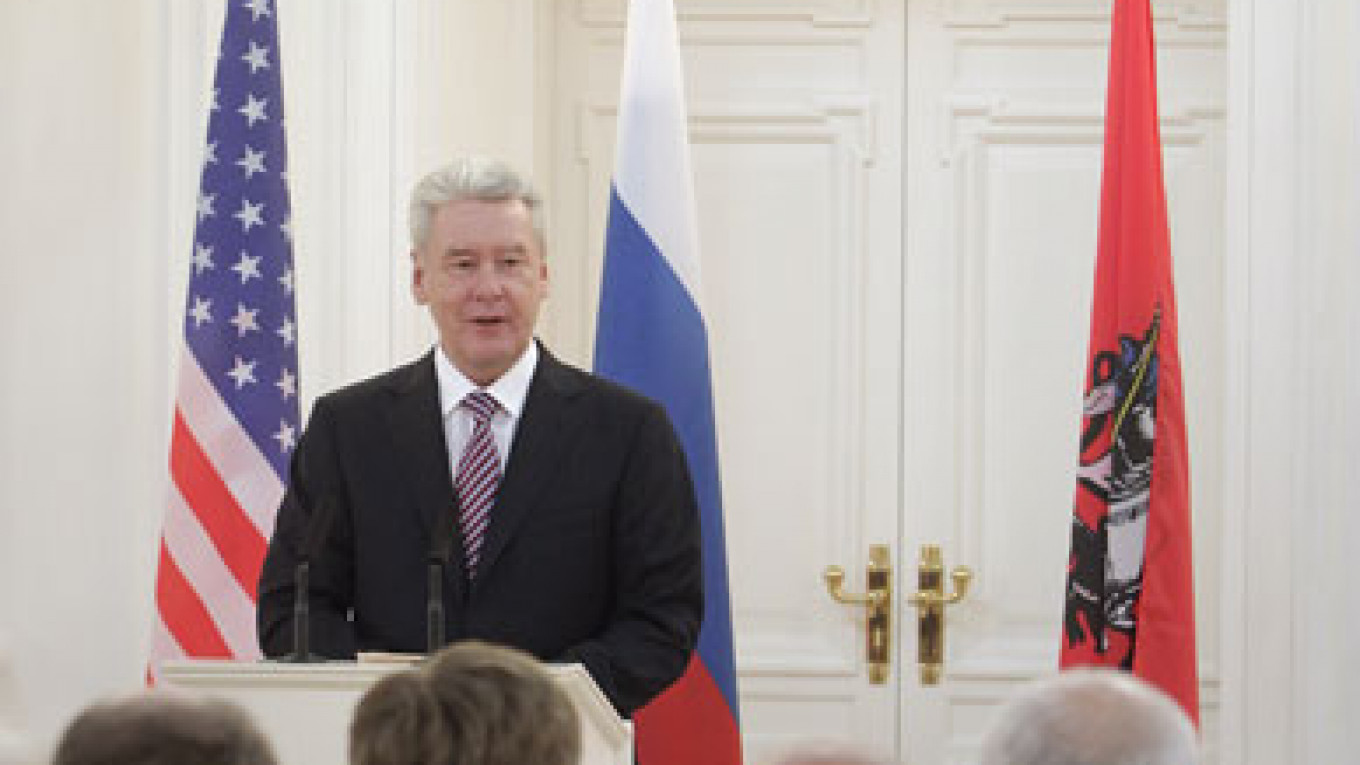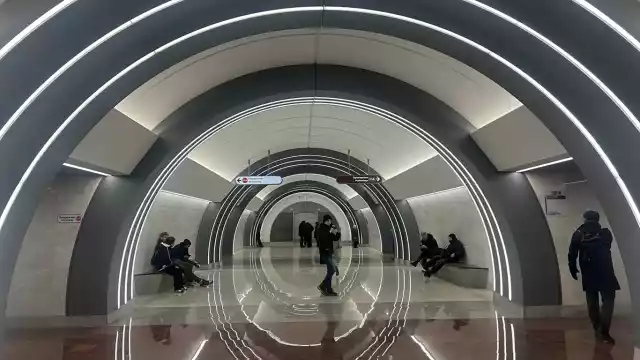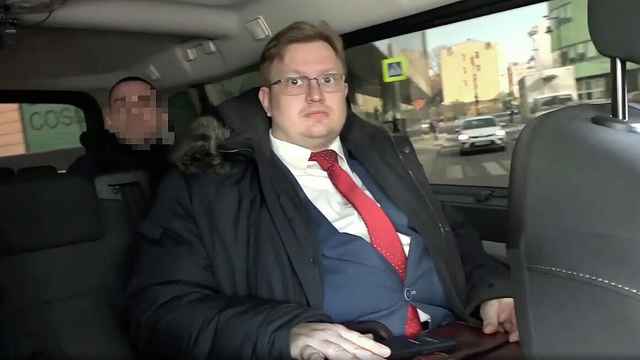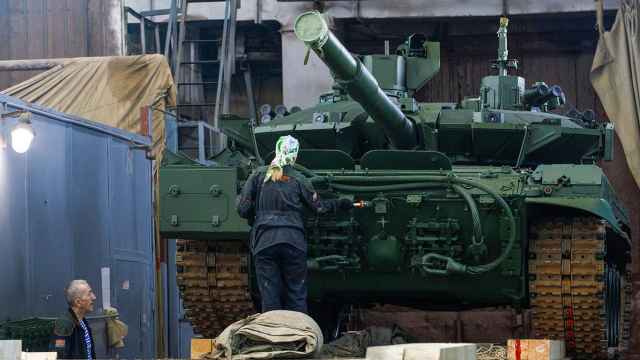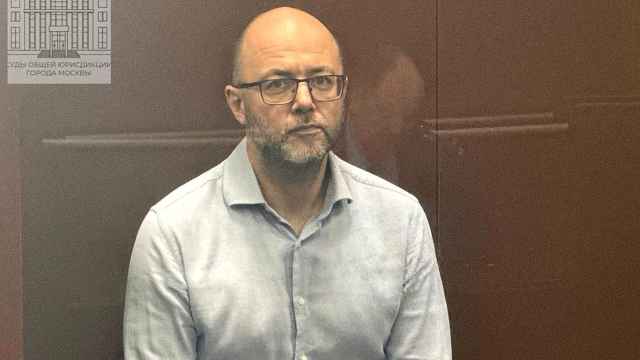Mayor Sergei Sobyanin on Tuesday impressed members of the American Chamber of Commerce with an offer of cooperation at a meeting in a former imperial palace, an event that some of the foreigners in attendance described as unique.
Sobyanin proposed creating a working group where city officials would consult with AmCham about some economic measures. The mayor also highlighted other areas of mutual interest.
"This is the first meeting with a business focus that AmCham had with a Moscow mayor this century," AmCham president Andrew Somers told The Moscow Times afterward. "It can lead to productive contributions by American businesses."
"It's a unique event. Now we feel welcome," he added.
Sobyanin, a former chief of staff in Prime Minister Vladimir Putin's Cabinet, took charge of the City Hall at the end of 2010. His predecessor Yury Luzhkov had previously spoken only at a ceremonial event with AmCham.
Guests had no complaints about the heavy security. They packed most of the 138 ornate gray-blue cushioned chairs in the domed second-floor hall of the mansion near the Dynamo metro station to learn one thing: how open Sobyanin is to foreign investors.
Paul Kiesler, PepsiCo's general manager in Russia and one of the business leaders present in the hall, was upbeat about Tuesday's interaction.
"What's great about today is that it's a demonstration of this administration's commitment to work with industry to build a vibrant economic environment in Moscow," he told The Moscow Times. "I have been here for 20 years. It's one of the first times that the city administration really opened up and invited businesses to participate in decision-making."
AmCham initially invited Sobyanin to speak to the group at a five-star hotel, but he "turned around" and said he would host them at the recently renovated Petrovsky Palace on Leningradsky Prospekt, Somers recalled. Built at the end of the 18th century on orders of Catherine the Great, the palace briefly housed Napoleon's general headquarters before the emperor fled Moscow. An imposing structure, despite its modest proportions, the building now hosts City Hall receptions.
Opening the event that included U.S. Ambassador Michael McFaul as a guest, Sobyanin stated in his speech that his administration has improved the conditions of doing business.
"It seems to me that it has become easier to make investments in Moscow compared to what was two or three years ago," he said.
In the 15-minute speech, Sobyanin then made the proposal about consulting with AmCham on key decisions that could affect foreign businesses. In another idea, he said City Hall could send public tender invitations to foreign companies directly because it is often difficult for them to navigate the bidding terms and procedures. The measure would cut out the middlemen and broaden competition, he said.
He pointed out that the city hired foreign consultants McKenzie & Company and Boston Consulting Group to help develop a transportation strategy.
Sobyanin specifically invited foreign investment into clinics and entertainment parks. He said there were opportunities for foreign architects in the planned expansion of the city to the new territories that it annexed from the surrounding region — a move backed by President Dmitry Medvedev.
Four executives of U.S. companies — Abbott Laboratories, PepsiCo, Hines and John Deere — followed with presentations about their business in Russia and calls for more transparency and clarity about bidding for city contracts and greater involvement in decision-making.
Sobyanin took three questions from the business leaders. In answering one of them, he said the city selected several former school buildings to offer as premises for any investor that would want to set them up as schools for the children of foreign executives or diplomats.
Somers said City Hall has been helpful in other ways. He accepted the invitation to sit on a committee that began work in February to defend the rights of business people and said there had been practical follow-up from his involvement, including meetings he was able to arrange for AmCham members with city officials.
"It's not just talk," he said.
But Sobyanin has not managed to shake some of the trappings of his past, including an apparent dislike for the media.
Journalists on Tuesday were shepherded off to a room on the first floor of the mansion, where they watched the speech on two large flat-screen television sets hanging on a wall.
Journalists get similar treatment when attending Cabinet sessions and events in the Kremlin.
Staff writer Andrew McChesney contributed to this report.
A Message from The Moscow Times:
Dear readers,
We are facing unprecedented challenges. Russia's Prosecutor General's Office has designated The Moscow Times as an "undesirable" organization, criminalizing our work and putting our staff at risk of prosecution. This follows our earlier unjust labeling as a "foreign agent."
These actions are direct attempts to silence independent journalism in Russia. The authorities claim our work "discredits the decisions of the Russian leadership." We see things differently: we strive to provide accurate, unbiased reporting on Russia.
We, the journalists of The Moscow Times, refuse to be silenced. But to continue our work, we need your help.
Your support, no matter how small, makes a world of difference. If you can, please support us monthly starting from just $2. It's quick to set up, and every contribution makes a significant impact.
By supporting The Moscow Times, you're defending open, independent journalism in the face of repression. Thank you for standing with us.
Remind me later.


